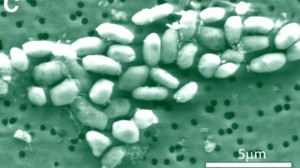
Science is a wonderful thing. It is perhaps the greatest organized device known for discovering the truth. However, it is not infallible. Today’s scientific axiom is tomorrow’s discredited idea. That is why I suggest that we as lawyers dealing with forensic science related aspects are living in a great time of fundamental change. It is exciting to be part of it. Not so exciting if you are the accused…
Today’s juries tend to give overwhelming and sometimes undue credence to forensic science. Conversely, today’s trial attorneys and jurists are increasingly becoming aware of the need to question its limitations and the resulting conclusions, which are really opinions that interpret the raw data that are offered and introduced as “evidence” in the courtroom. Still, in a society bombarded daily by news of astounding scientific discovery and amazing scientific accomplishment, there should be little surprise that conclusions obtained from allegedly scientific means are assumed by many to be always correct, even where there is great potential for error in actuality.
I think of the idea that today’s accepted science is subject to review and is evolutionary (or perhaps once in a generation revolutionary) can be likened to gravity in the sense that certain concepts become so axiomatic that they more or less cease to be researched as they are non-controversial and become basically fundamental. Hence, the concept itself becomes part of the scientific zeitgeist upon which all after-acquired knowledge is based.
We have grown up in a time where Pluto was a planet and now is not. The rock didn’t change, just its classification. We like that transferable concept in the Courtroom to illustrate this point.
Well, today there is even a better one to use…
Today, through the efforts and research of Felisa Wolfe-Simon, it has discovered that a new form of life that is bacteria whose DNA uses arsenic instead of phosphorus — unlike any other life form on earth–exists.
Wherein it was an axiom often repeated, always taught and rarely questioned up to today that:
1. All life on Earth is made of six components: Carbon, hydrogen, nitrogen, oxygen, phosphorus and sulfur.
2. Every being, from the smallest amoeba to the largest whale, share the same life stream.
3. Our DNA blocks are all the same that is the condition called “life”.
Today, NASA scientist Felisa Wolfe-Simon and her team have found a bacteria whose DNA is completely alien to what we know today and has simply turned the axiom described above into upheaval. Instead of using phosphorus, the newly discovered microorganism—called GFAJ-1—uses the poisonous arsenic for all its building blocks.

This means that we’ve been looking, in part, for the wrong conditions for life this whole time! This makes the traditional axiom questioned again and the above hypotheses falsified. It is back to the proverbial drawing board on a basic foundational concept of science. Today was proof positive that today’s accepted science is subject to review and is evolutionary (or perhaps once in a generation revolutionary).
So, when we all get in the courtroom it is only natural, proper and correct to question the science. Our understanding of forensic science and its axioms should be no different.
As a good friend and colleague of mine, Kirby Riffel of Arkansas, once wrote:
A recent lecture pointed out that nearly 100% of scientific dogma in 1905 (when Einstein published the special theory of relativity) has been since falsified, amended, re-stated or has a major anomaly that is inconsistent with existing theory. That is the nature of true science,whose ethics demand a skeptical attitude and takes joy in falsification as the appointed path to greater knowledge. The corollary is that it is most likely that current dogma will not withstand the next 50 years.
Sadly, there is no such “joy in falsification” in forensic science. The inertia is so great and the anecdote so entrenched that even when there is accepted falsification of any hypothesis that is foundational to some discipline in forensic science, there is no joy and the findings are dismissed with the constant refrain of anti-empiricists, which is their anthem of— “this is the way we always did it”. It is sad that generally-speaking forensic science is not like real science. Hopefully this will change. It is up to us.


